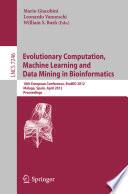
Writing and Learning in the Science Classroom
This volume is of interest to science educators, graduate students, and classroom teachers. The book will also be an important addition to any scholarly library focusing on science education, science literacy, and writing. This book is unique in that it synthesizes the research of the three leading researchers in the field of writing to learn science: Carolyn S. Wallace, Brian Hand, and Vaughan Prain. It includes a comprehensive review of salient literature in the field, detailed reports of the authors' own research studies, and current and future issues on writing in science. The book is the first to definitely answer the question, "Does writing improve science learning?". Further, it provides evidence for some of the mechanisms through which learning occurs. It combines both theory and practice in a unique way. Although primarily a tool for research, classroom teachers will also find many practical suggestions for using writing in the science classroom.
- ISBN 13 : 9781402020179
- ISBN 10 : 1402020171
- Judul : Writing and Learning in the Science Classroom
- Pengarang : Carolyn S. Wallace, Brian B. Hand, Vaughan Prain,
- Kategori : Education
- Penerbit : Springer Science & Business Media
- Bahasa : en
- Tahun : 2004
- Halaman : 150
- Halaman : 150
- Google Book : http://books.google.co.id/books?id=4QZjjESWVJoC&dq=intitle:writing+strategy+for+science&hl=&source=gbs_api
-
Ketersediaan :
SCIENCE. THROUGH. WRITING. Brian Hand Throughout the last 30 years there
has been much attention to ... First, the interactive-constructivist position of
learning theory that guides our ideas of writing as a learning strategy is
presented.









